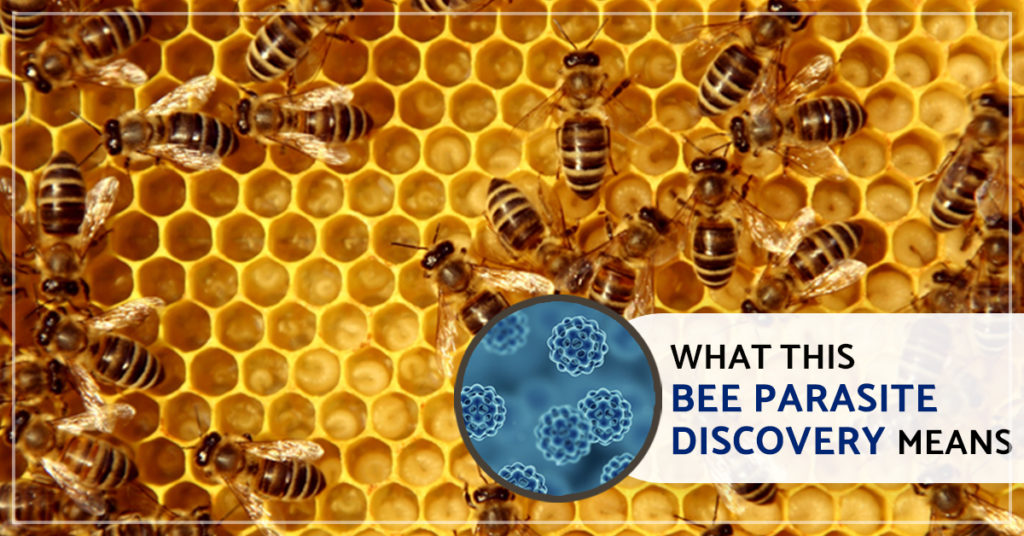Scientists have known about this bee parasite for years. Now, they’ve discovered new information about what the parasite does to the bee.
The new findings matter because around 2006, beekeepers started reporting the collapse of bee colonies which sparked concern for the food industry.
After all, when it comes to our food supply, many ingredients used in food manufacturing depend on pollinators. Key ingredients, from almonds to canola, require pollinators to produce food. And bees make up one third of the pollinator population.
The fear of what colony collapse could do to the food industry and food security put scientists on a mission to unearth the cause of the dying bees.
What scientists thought might be the problem
Scientist Samuel Ramsey says researchers considered three possible bee-death causes: pesticides, poor nutrition, and parasites. They knew the varroa parasite was an issue, weakening colonies against pesticides and decreasing good nutrition.
What bee parasite researchers recently found
The bee parasite varroa destructor is a nasty bug that embeds itself in the bee’s body. Scientists originally thought the pests were feeding on the bee’s blood supply which, of course, would cause problems to the bee’s health.
But a recent discovery has found that the mites actually feed on one of the bee’s vital organs: the fat body organ. The organ is important for regulating hormones. It also creates an external wax that keeps the bees hydrated and shields against diseases. The organ-devouring mites weaken the bee’s resistance against pesticides and drains them of critical nutrients.
According to the research, “this could transform researchers’ understanding of the primary threats to honey bees while pointing the way toward more effective mite treatments in the future.”
What this means for our food supply
Given that three out of four global fruit and seed crops rely heavily on pollinators, the sudden (and mysterious) collapse of bee colonies posed a serious threat to food crops and food production.
In response, global organizations set out to create awareness about caring for bee habitats, including decreasing the use of harmful pesticides.
This latest discovery could change how everyone, from food producers to commercial beekeepers, manages crops and pollination moving forward. Just knowing what the mites do to the bees will allow for better, more precise treatment plans.
And that will strengthen bee colonies, stabilizing future pollination and food production. One thing is for certain, it will remove a scary unknown for many food producers and manufacturers in the U.S. and around the world.
For more information on the bee parasite research, including detailed electron microscope images of the varroa mite, click here.
As a food industry professional, what are your thoughts on these latest findings? Let us know in the comments.
###
At Ingredient Exchange, we help food industry people keep their valuable food inventory in great shape. Need to move problem ingredients out of your warehouse? From off-spec sweetener to low-moisture cheese, we can quickly turn your problem ingredients into cash. Get in touch.



